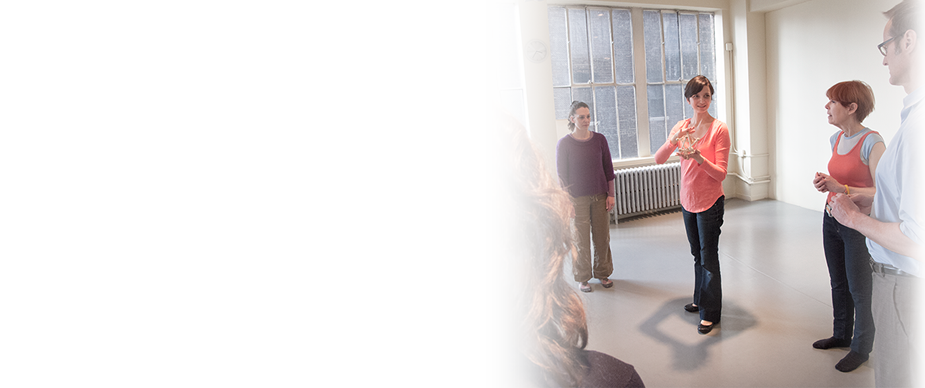The Posture Game Tips for Improving Your Posture at Your Desk Without Over-Focusing
/When we're trying to change physical habits, it would seem logical that we would pay attention to our bodies, which can be helpful for re-educating posture and movement patterns. How you do it is the tricky part.
If you focus so intensely that you become stiff and barely breathe in order to try to "feel" where your body is in space, this could become another posture problem rather than a solution.
Actors, dancers, musicians and athletes all use what they learn from Alexander Technique lessons to great effect and they wouldn't be able to do so if they had to stop and concentrate in order to stand, sit, and move better.
So how can you focus on your posture and movements without FOCUSING?
What can be more helpful than intense, direct focus on your body is more of a general spatial awareness, which includes your physical space (your body) and your environment.
Our relationship to our environment affects how we take up space and our posture can be dramatically affected by how we focus our attention. Here are two examples...
1. At the computer
A lot of visual stimuli in front of you
Tuning out of environmental sounds
Static positions maintained for long period
Aside from the screen, surrounding environment generally remains rather static
No need to pay attention to or respond what's going on around you other than what appears on the screen.
Reduced awareness of body
2. Playing a team sport
Visual and auditory stimuli (that must be paid attention to) coming from all directions
Frequent movement
Even when not moving, players are in a state of readiness, prepared to move in any direction to hit a ball, catch a pass, or protect a goal.
Heightened awareness of where your body is in space
The person at the desk and the person on the field are each focused on an activity...a game and and email or spreadsheet....It's just that the game inherently requires more 3-dimensional attention.
By attention, I don't mean concentrating, over-focusing, or trying really hard to feel what's right. I simply mean that you can put more attention on more of the information that your senses are taking in to avoid being absorbed by the glowing screen.
Stop what you're doing for a moment and imagine that someone might be throwing a ball to you from any direction and see if it changes how you hold your body. Do you feel a bit more 3D? Are you sitting taller? Do you have more of a sense of readiness...like you could move in any direction?
Now really focus on your screen. What does that do?
Go back to imagining the ball...
Different, right?
Now try doing both at the same time
As you're reading this, do you hear any sounds around you? Just notice them. Do you feel your bottom on what you're sitting on if you're sitting?
Can you sense your feet on the floor?
Your back on the back of your chair?
Do you see anything in your peripheral vision?
Acknowledge that there is space above your head.
Don't focus on these sensations. Just take note that they are there. Simply notice that you are in three-dimensional space by tuning in a little bit.
Do you feel a little bit like you did when you imagined that you were going to catch a ball?
Play around with expanding your attention, even a little bit. Make it a game! I'm not saying that every athlete or performer has perfect posture, but you can use this playful strategy to create better conditions for improving yours.


